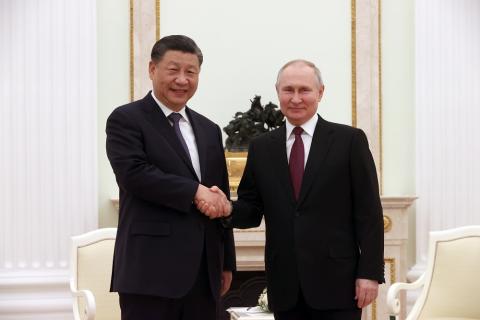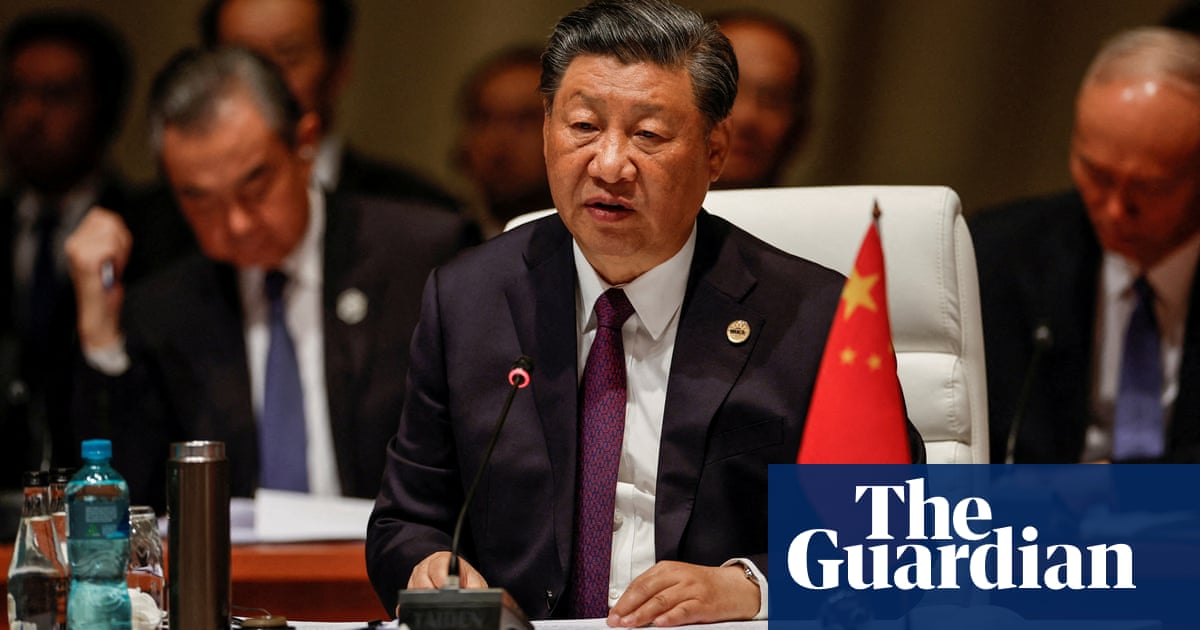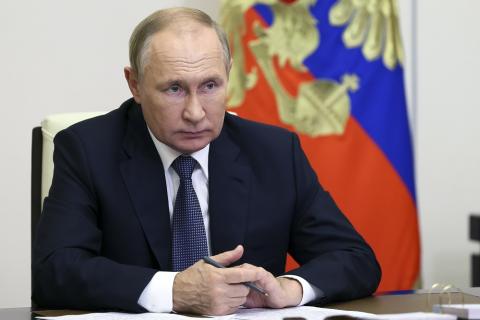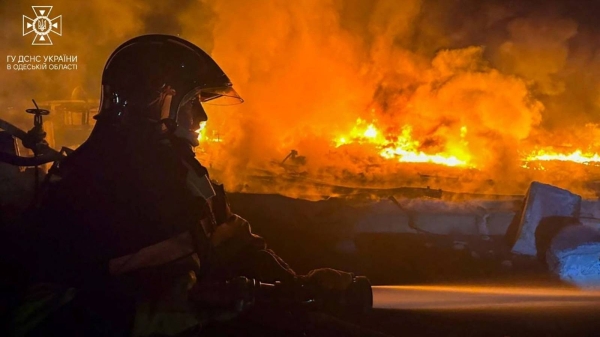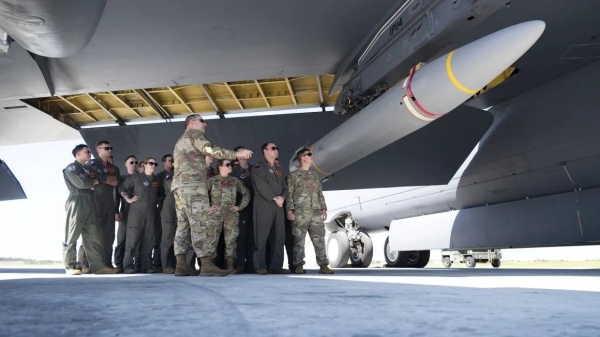
Vladimir Putin invited his Chinese counterpart, Xi Jinping, on Friday to make a state visit to Russia next spring, as Moscow seeks to deepen its ties with China amid growing international isolation over the war in Ukraine.
Speaking to Xi via a videoconference, Putin said Russia’s ties with China are the “best in history”, expressing his wish to extend military collaboration and inviting Xi to visit Moscow.
Without mentioning the war in Ukraine, Putin said he shared the same views with Xi “in the face of unprecedented pressure and provocations from the west.”
“We are expecting you, dear Mr Chairman, dear friend, we are expecting you next spring on a state visit to Moscow,” Putin told Xi in an eight-minute introductory statement broadcast on state television.
Xi, in turn, said his country was ready “to increase strategic cooperation with Russia”, and continue to “be global partners for the benefit of the peoples of our countries and in the interests of stability around the world”.
The Chinese leader made no mention of a visit to Moscow, according to the official translation into Russian. Xi said that his country would maintain its “objective and fair” stance on the war in Ukraine.
The meeting was closely watched by analysts for any sign that China was re-evaluating its backing of Putin as Russia’s war falters.
Since the start of the invasion, Beijing has sought to balance its support for Moscow with the wish to avoid the indirect impact on its economy of sanctions levelled at Russia by the west.
While China has blamed the west for inflaming tensions in Ukraine, it has stopped short of supplying weapons to Moscow, while its companies have largely complied with the unprecedented western sanctions imposed on Russian business.
“Everyone wants to see if Xi is having buyer’s remorse about Putin,” said Alexander Gabuev, a senior fellow at the Carnegie Endowment for International Peace. “But today’s call indicates that Xi isn’t planning to throw Putin under the bus. The ties between the two countries will only grow next year,” Gabuev added.
Gabuev pointed to the steep rise in economic cooperation between the two countries since the war started, with China now accounting for more than a quarter of Russia’s total imports, according to the Washington-based Institute of International Finance.
Chinese customs data also shows that the two countries’ bilateral trade has increased by 32% in 2022, reaching a record $172.406bn between January and November of this year.
Chinese firms have eagerly filled the vacuum created by the exodus of hundreds of western companies that left Moscow in the days following the start of the invasion.
According to a recent report by the RBC business outlet, out of the 14 car brands still sold on the Russian market, the only foreign ones – 11 of them – are Chinese.
“Xi does not want to cross western red lines – weapon supplies to Russia and sanction evasion – but he is also aware that he has a lot of leverage over Moscow and can benefit from this crisis,” Gabuev said.
“The integration between the two countries will be happening in Chinese terms. Putin has no one else to turn to.”
Gabuev added that a state visit by Xi to Moscow next year would be seen as a major public show of solidarity from China.
The call between the two leaders came hours after Ukraine was once again attacked by Iranian-made “kamikaze” drones. The Ukrainian military said it had shot down all 16 drones, which it said were sent from the south-east and north.
“The enemy continues to launch massive air attacks on Ukraine’s capital city,” the Kyiv military administration said in a statement posted on the Telegram messaging platform.
Vitali Klitschko, the mayor of Kyiv, said that there were no casualties from the overnight strikes.
The latest drone attack comes at the end of a week in which Russian forces launched a series of deadly bombardments of the recently liberated city of Kherson.
Late on Thursday, the president, Volodymyr Zelenskiy, repeated his earlier warnings that Moscow could be planning to plunge Ukraine into darkness before the New Year’s Eve holiday.
“Perhaps the enemy will try once again to make us celebrate the new year in darkness,” he said in his overnight address.
Also on Friday, Belarus claimed Ukraine was trying to widen the conflict, after Minsk reported on Thursday that its air defence forces had shot down a Ukrainian S-300 surface-to-air missile near the village of Harbacha in the Brest region.
“Kyiv is striving to provoke a regional conflict by any means,” the Belarus security council secretary, Alexander Volfovich, told the Russian state-owned outlet Sputnik Belarus. “An example of this is the recent incident with the destruction of the Ukrainian S-300 missile. There is little reason to believe that it entered our airspace by accident. By all appearances, it seems some plan was being realised here.”
A Ukrainian military spokesperson said the incident was “the result of air defence”.
Thursday’s incident came amid fears in Kyiv that Moscow is pushing its closest ally to join a new ground offensive against Ukraine.




